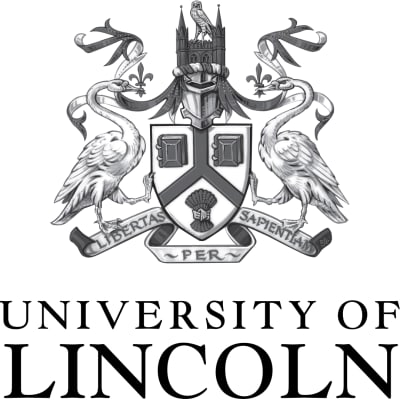
BSc (Hons) Chemistry with Education
University of Lincoln

Key Information
Campus location
Lincoln, United Kingdom
Languages
English
Study format
On-Campus
Duration
3 years
Pace
Full time
Tuition fees
Request info
Application deadline
Request info *
Earliest start date
Request info
* late applications will be considered if suitable vacancies remain
Discover Lincoln Wherever You Are in the World
Our webinars, subject masterclasses, question and answer sessions, and student panel talks are a great way to discover what it is like to live and study at the University of Lincoln.
Introduction
By offering a thorough grounding in chemistry along with the intellectual and research skills needed for a career in teaching, this course aims to develop students with the skills to teach the next generation about the fundamental importance of chemistry.
The programme has been developed in collaboration with the University's School of Education. This School works closely with primary and secondary schools, creating a curriculum and mode of teaching that is in line with employer expectations. As part of the degree, there may be the opportunity to undertake a teaching placement with a local school in addition to other educational experiences. Students are responsible for their own travel, accommodation, and general living costs when undertaking these placements.
The course is designed to encourage a collaborative approach with students engaging with one another, academics and teachers. This can support critical reading, debate, reflection on experience and research into topics of interest.
"This information was correct at the time of publishing (July 2023)"
Admissions
Curriculum
How You Study
Students will be given the chance to gain core knowledge in the fundamentals of chemistry in the first year, dealing with topics such as synthetic methodologies and molecular characterisation; laboratory techniques; molecular structure, bonding and mechanism; and electronic structure, spectroscopy, and reactivity in p-block compounds.
The second and third years involve core chemistry and can include a teaching placement in both years. Subjects can include education practice and science education as well as a third-year research project, which could be carried out in a school on a relevant area of science education. Students are responsible for their own travel, accommodation, and general living costs when on placement.
The course includes lectures, seminars, laboratory-based practical classes, and lectures from visiting scientists. Extensive small-group teaching and innovative team-based learning aim to create a supportive learning environment to help students train through practice and problem-based approaches.
First Year
- Chemistry Extension 1: Electronic Structure, Spectroscopy and Reactivity in p-Block Compounds (Core)
- Core Chemistry 1.1: Introduction to Energy, Change and Electronic Structure (Core)
- Core Chemistry 1.2: Molecular Structure, Bonding and Mechanism (Core)
- Introduction to Professional Practice (Core)
- Practical Chemistry 1.1: Fundamental laboratory techniques (Core)
- Practical Chemistry 1.2: Introduction to synthetic methodologies and molecular characterisation (Core)
- Professional Practice 1: Analytical Sciences (Core)
Second Year
- Core Chemistry 2.1: Stability, Structure and Mechanism in Molecular Systems (Core)
- Core Chemistry 2.2: Chemistry of Activated Systems and Radicals (Core)
- Education Theories and Practice (Core)
- Practical Chemistry 2.1: Organic synthesis, purification and advanced characterisation (Core)
- Practical Chemistry 2.2: Inorganic synthesis and structural methods (Core)
- Professional Practice 2.2: Pharmaceutical Sciences (Core)
- STEM Experience 1 (Core)
Third Year
- Core Chemistry 3.1: Defining Shape, Symmetry and Stereochemistry (Core)
- Core Chemistry 3.2: Heterogeneous Systems, Surfaces and Nanoscience (Core)
- Practical Chemistry 3.1: Advanced techniques in IO-chemistry (Core)
- STEM Experience 2 (Core)
- STEM Pedagogy (Core)
- Structured project (Core)
† Some courses may offer optional modules. The availability of optional modules may vary from year to year and will be subject to minimum student numbers being achieved. This means that the availability of specific optional modules cannot be guaranteed. Optional module selection may also be affected by staff availability.
How You Are Assessed
The way students are assessed in this course may vary for each module. Examples of assessment methods that are used include coursework, such as written assignments, reports or dissertations; practical exams, such as presentations, performances or observations; and written exams, such as formal examinations or in-class tests. The weighting given to each assessment method may vary across each academic year. The University of Lincoln aims to ensure that staff return in-course assessments to students promptly.
Gallery
Program Outcome
How You Study
Students will be given the chance to gain core knowledge in the fundamentals of chemistry in the first year, dealing with topics such as an synthetic methodologies and molecular characterisation; laboratory techniques; molecular structure, bonding and mechanism; and electronic structure, spectroscopy, and reactivity in p-block compounds.
The second and third years involve core chemistry and can include a teaching placement in both years. Subjects can include education practice and science education as well as a third-year research project, which could be carried out in a school on a relevant area of science education. Students are responsible for their own travel, accommodation, and general living costs when on placement.
The course includes lectures, seminars, laboratory-based practical classes, and lectures from visiting scientists. Extensive small-group teaching and innovative team-based learning aims to create a supportive learning environment to help students train through practice and problem-based approaches.
Scholarships and Funding
For eligible undergraduate students going to university for the first time, scholarships and bursaries are available to help cover costs. The University of Lincoln offers a variety of merit-based and subject-specific bursaries and scholarships.
Several scholarship options are available. Please check the university website for more information.
Program Tuition Fee
Career Opportunities
Chemistry graduates may pursue a wide range of science-related careers in sectors including energy, petrochemicals, pharmaceuticals, and consumer and personal care products. Students who apply to take the PGCE as chemistry teachers can receive bursaries from the government, subject to meeting qualifying criteria.